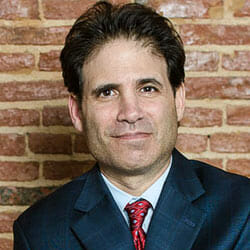Post Traumatic Stress Disorder
Members of the U.S. military provide an invaluable service for their country. They leave their homes and families to protect the rights of citizens, not only in the U.S., but worldwide. Oftentimes, however, military service members don’t come home unscathed.
The Veterans Administration (VA), established in 1930, and the subsequent U.S. Department of Veterans Affairs, established in 1989, provides veterans with medical care, benefits and other services that they and their families need to recover from their military service and re-adjust to everyday life. For veterans with PTSD, this can be a difficult task.
Veterans and Post Traumatic Stress Disorder
Post Traumatic Stress Disorder, or PTSD, is a mental health or anxiety disorder that affects those who have experienced a trauma where the person fears that their life or the lives of others are in danger and they may feel that they have no control over what is happening. Combat or war exposure, terrorist attacks, physical assault, serious accidents, and natural disasters may all be experienced by military service members and may all lead to PTSD.
Symptoms and Treatment of PTSD
According to the National Center for PTSD, there are four types of PTSD symptoms:
- Re-experiencing Symptoms, or Reliving the Event
- Avoiding Situations that Remind You of the Event
- Feeling Numb
- Hyperarousal (feeling nervous, jittery, excited, and/or alert and looking for danger)
These symptoms can cause trouble sleeping; anger and quick temper; withdrawal from family, friends and society; constant fear; and, increased sensitivity to stimuli. Without treatment, PTSD can completely disrupt daily life and make it difficult to perform even routine activities. Common issues associated with untreated PTSD include alcohol and drug-abuse, depression, employment issues, relationship problems and physical symptoms.
Treatment of PTSD
Dealing with the past can be a very difficult process, but there are treatments that can help a victim of PTSD get better so that they may live a normal life, though memories will remain. There are two main treatments for PTSD:
- Cognitive behavioral therapy (CBT), which is considered the most effective type of PTSD counseling; and
- Selective serotonin reuptake inhibitor (SSRI), which is a medication also used for depression.
Any injury, illness, or other condition, including PTSD, can stop a military veteran from being able to work, sleep, eat, or lead a normal life. Fortunately, the Veteran’s Benefits Administration (VBA) establishes a system that may help.
VA Disability Compensation
According to the VBA, a subdivision of the Department of Veterans Affairs, disability compensation is a benefit paid to veterans who sustained injury or disease while on active duty, or had an injury or disease that was exacerbated by active military duty. The benefits, which are tax-free, are also paid to veterans disabled from VA health care in certain circumstances.
VA Disability Benefits Eligibility
In order to be eligible to receive VA disability compensation benefits, a veteran:
- Must have a service-related disability, and
- Was discharged in other than dishonorable circumstances.
The amount paid in benefits varies as it is determined by the level of disability. Additional amounts may be paid, however, if the veteran has a very severe disability or loss of limb(s), has a spouse, children, or dependant parents and/or if the veteran has a severely disabled spouse.
Applying for VA Disability Compensation
The application process for disability benefits is not complicated, but it requires the inclusion of a variety of paperwork, including discharge papers, dependency records, such as a marriage certificate, and medical reports. Not having the right paperwork can delay your application, and thus the disability compensation you need.
Steven H. Heisler, “The Injury Lawyer,” has the utmost respect for military veterans and considers it an honor to help them get the compensation they deserve as quickly as possible. If you are a veteran in Maryland and are planning to apply for disability benefits, Mr. Heisler, an experienced Maryland VA disability attorney, can help you through the process. Please call him today so that he may answer all of your questions at (410) 625-4878.

Attorney Steve Heisler
Steve Heisler decided in 1996 that he was going to focus his law practice exclusively on injury cases. Since then, he has been representing injured people against insurance companies, disreputable medical practitioners and Big Pharma, and doing it with compassion, honesty and level-headed rationality. [ Attorney Bio ]

